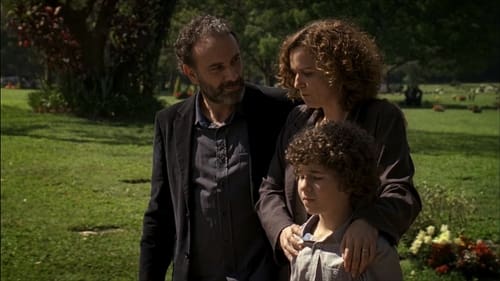
Sound Recordist
An examination of the relationship between the life and art of Maria Martins, now recognized as one of the greatest Brazilian sculptors, in addition to her engravings and texts. The film reveals the greatness of her work and her boldness when dealing directly with the feminine perspective of sexuality, a transgression that led to attacks by Brazilian critics. In parallel, her life as the wife of an important diplomat and her connection to Marcel Duchamp, in a relationship of mutual collaboration between the two artists.

Sound
1986. In the waiting room of a clandestine abortion clinic, the receptionist, a patient and a accompanying await the passage of Halley's comet, while the doctor faces difficulties with one of the procedures.

Sound Recordist
Antonio is 8 years old and is a Santos supporter. He dreams of going to the stadium to watch their team play. The film accompanies Antonio in his memorable first trip to a football stadium.

Sound Mixer
Théo goes to the funeral of his childhood best friend. Then, memories return.

Sound
A short film made for City Life (1990)

Sound
A look at the Brazilian black movement between 1977 and 1988, going by the relationship between Brazil and Afrika.

Sound Recordist

Sound
From its very title, Cláudio Kahns and Antônio Paulo Ferraz's Santo e Jesus, Metalúrgicos is crystal clear about where it stands and about its messianic flair. Through a wordplay with the religious connotation of the names of the two men, murdered during the worker strikes of the late 1970s in São Paulo, it associates sainthood and Christ himself with the working class. That association is reaffirmed throughout the film, from the very beginning, including by a priest. The martyrdom of metalworkers Nelson Pereira de Jesus and Santo Dias da Silva is the starting point to denounce the working conditions faced by factory workers, and the repression which ensues whenever they try to resist them. However, the film also presents us with the 'official' version of the facts, going so far as to feature interviews with the man who killed Nelson. Obviously, it sides with the workers, as it conveys the strength of the oppressed and the impudence of the oppressors.

Sound Director
The process of formation of the person and its identity from an African conception of the world. The orixás (gods), linked to the forces of nature, are equal to people, and are not transcendent. of the person with their orixá, within the family and the culture. Filmed in a Candomblé terreiro of Bantu origin.





